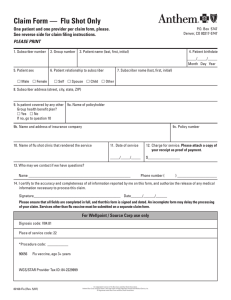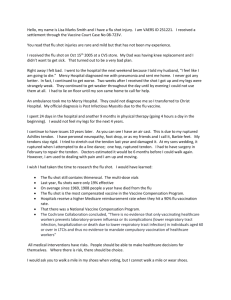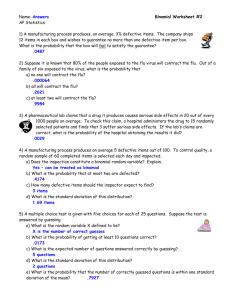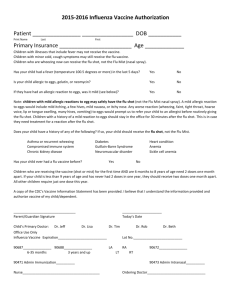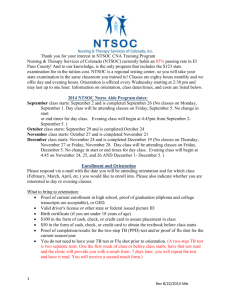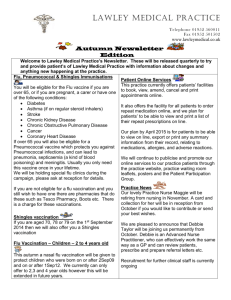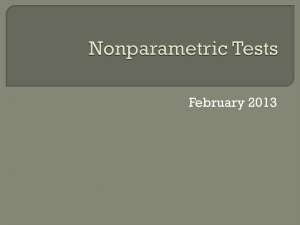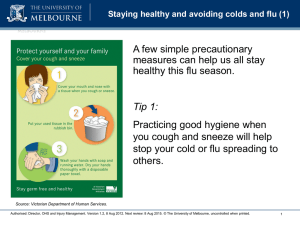Chapter 4. Economic Theory, Markets, and Government
advertisement
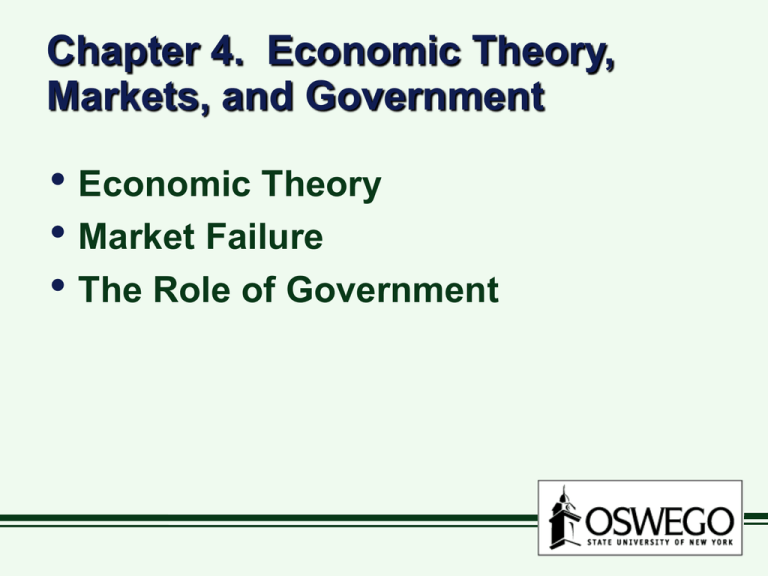
Chapter 4. Economic Theory, Markets, and Government • Economic Theory • Market Failure • The Role of Government I. Economic Theory • Elements • objectives • constraints • choices objectives • what do we want to do? • people: maximize satisfaction • firms: max. profits • gov't: max. re-election or budget constraints • limits on how we achieve objectives • physical (PPC) • financial (budget constraint) • legal (property rights) choices • a statement about likely choice • law of demand • law of supply key assumption • people are rational • • people make best decision give their objectives and constraints rational decisions are • consistent • forward-looking rationality • full • • use all available info when making decisions bounded • limited ability to process information rationality & objectives • self-regarding preferences • • maximize own satisfaction other-regarding preference • max. own and others' satisfaction • care what others think Theory vs. observation • combine theory with observation • simplest theory, • consistent with observation • (Ockham's razor) What if observations do not match theory? • modify theory • • have we allowed for all constraints? • are the objectives correct? reluctant to change • preferences • rationality assumption II. Market failure • Usually market allocates resources optimally • directs resources to best uses • market outcome is efficient • market failure results when • market outcome is not efficient • too little of good is produced OR • too much of good is produced When does this happen? • externalities • public goods • lack of competition Externalities • 3rd party gets costs or benefits from good • production or consumption • OTHER than buyer/seller • External benefit = positive externality • External cost = negative externality example: flu shot Flu shot • I pay $10 for a flu shot • I am less likely to get the flu • AND • you are less likely to get the flu • external benefit So what’s the problem? • My decision to get flu shot based on only MY benefits • underestimate total benefits of shot • too few people get shots • markets under-produce goods with external benefits So what’s the solution? • Government subsidy of flu shot -- price is cheaper -- more people get flu shots Other goods with external benefits • education • antilock brakes • landscaping Example: electricity production • Profits for utility company • costs to utility company • external costs -- air pollution -- water pollution So what’s the problem? • Electricity cost reflects production • cost not pollution costs • underestimate total costs • electricity is too cheap • markets over-produce goods with external costs So what’s the solution? • Government pollution regulation • increase costs of electricity • less power generated Other goods with external costs • Cigarette smoking • loud music • drunk driving Public goods • nonexclusive • cannot exclude those who do not pay from getting benefits • nonrival • my consuming good does not prevent you from consuming it • Private good: candy • if I eat it, you cannot • Public good: missile defense shield over CNY • everyone here can use it So what’s the problem? • If I buy the shield, you benefit • so I wait, hoping you buy the shield…. • nobody buys the shield • free rider problem • market alone will fail to produce the public good So what’s the solution? • Gov’t levies taxes to fund production of public good • society better off Other public goods: • law enforcement • fire protection • roads, bridges • flood control Lack of Competition What is it? • Firm is large or only supplier • firm is able to influence price With no market power Perfect competition • many firms • max output at lowest price example: • dairy farmers Monopoly • one firm is only supplier examples: • Microsoft (Windows) • National Grid (distribution) • Pfizer (Lipitor) Oligopoly • a few firms examples: • automobile companies • GM, Ford, Chrysler • cereal companies • General Mills, Post, Kellogg • soft drinks Cartels • A few firms get together and act like a monopoly examples • OPEC (oil) • DeBeer’s (gemstones) So what’s the problem? • Firms w/ market power restrict output • increasing prices • anti-competitive behavior • no incentive to improve quality So what’s the solution? • Antitrust laws • regulate BEHAVIOR not size • case against Microsoft Not all monopolies are bad! 1. Natural monopolies • efficient to have only one producer example: • electricity distribution 2. Gov’t - created monopolies • Use patents to give firm exclusive right to supply • allows firm to recoup research costs example: • drug companies III. Role of Government • dealing with market failures • • • • regulation subsidies/taxes anti-trust laws provision of goods/services problems • rent-seeking • government failure rent-seeking • parties lobby gov’t for laws to protect their interest at expense of others • tariffs/quotas • tax credits • patent/copyright extention government failure • law of unintended consequences • policies have other effects • is the cure worse than the disease?

